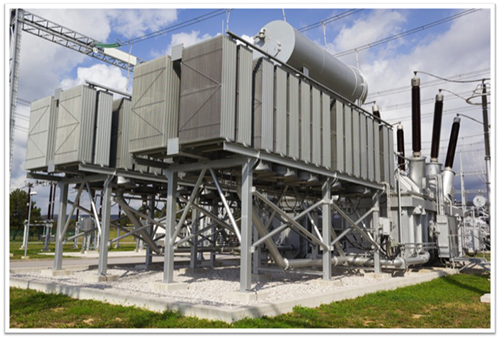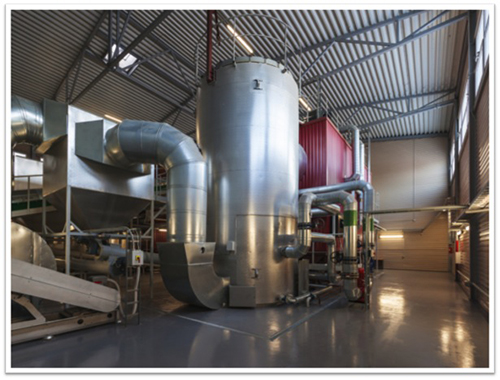
Electromagnetic induction is the process through which AC and DC generators generate an electric current. The process occurs when an electric current passes through a shifting magnetic field, thereby causing the conversion of mechanical energy into electrical energy, but what is the difference between AC and DC power?
One of the key differences between an AC and DC generator is that in the former, the electrical current reverses direction occasionally, while in the latter, electric current flows progressively in one direction. Below are a few other differences between DC and AC.
AC and DC generators serve different primary purposes. This is especially evident in the type of devices they each power. Typically, AC generators power home electrical appliances and small motors such as juicers, vacuum cleaners, and food mixers.
However, DC generators are used to power large electric motors such as those used in subway systems. Batteries used for off-grids are also charged using direct current generators because they provide efficient and reliable energy supply.
In an AC generator, the coil through which current flows is fixed, and the magnet usually moves. The south and north poles of the magnet make the current flow in opposite directions, thereby creating an alternating current.
In contrast, the coil in a DC generator motor is not fixed; rather, it rotates in a fixed field. The two ends of the coil are attached to the commutator, which balances the charges to and from the generator, thus resulting in a current that does not alter direction.

The output voltage produced by an AC generator varies in time and amplitude. However, in a DC generator, the output power is often steady. It does not vary in time and amplitude because the commutator balances the voltage.
If either AC or DC comes into contact with the human body, it can be hazardous. The actual effect of an AC vs. DC generator varies, depending on several factors, including the amount of current administered, how long it was in contact with the body, the pathway of the current, voltage applied, and impedance of the body itself.
The output power of an AC generator is normally 120 volts and above. This high voltage can sometimes easily result in injury or even death in some cases. On the other hand, a DC generator is typically low voltage. As a general rule of thumb, for DC to produce the same effect as AC on the human body, its flow of constant strength must be two to four times that being administered by the AC.
The design of a DC generator provides seamless connectivity and efficient power flow because it does not require a transfer switch. However, an AC generator often requires considerable engineering and incurs high expenses to transfer electricity to remote sections of the grid.
In search of a reputable provider of reliable AC and DC industrial
generators in the United States and Canada?
Power Plus! is a leader in this industry.
Get in touch with us today to ask any questions you may have. Contact Power Plus at (800) 863-2525 | sales@powerplus.com
|
|
Enhancing Security at Storage Facilities with Power Plus DVS When people store trucks, trailers, boats, and RVs at storage facilities, they’re not just stashing extra vehicles and old equipment.
They’re entrusting these businesses with some of their most valuable possessions — and often their livelihoods.
Read More…
|
|
|
Securing Truck Yards and Equipment Rental Yards with Video Surveillance Storing high-value inventory like heavy-duty trucks, trailers, and construction equipment, truck yards and equipment rental yards are prime
targets for cargo theft and other security threats.
Read More…
|
|
|
The Benefits of Custom-Designed Video Surveillance for Commercial Properties It’s no secret Power Plus DVS started out in construction site security. It’s where we learned to always walk a property before
designing its video surveillance system.
Read More…
|
|
|
How Video Surveillance can Reduce Costs for Security Guard Companies Back in the day, security guard companies like yours were the logical first defense against crime, vandalism, and trespassing. But in our
ever-changing world – with evolving technology, higher value targets, and more shrewd criminals – yesterday’s stalwart guard services
are facing unprecedented, new challenges.
Read More…
|
|
|
Cost-Effective Security: The Advantages of Business Video Surveillance As fast as today’s business world is evolving, the need for cost-effective security solutions is even more crucial than ever.
Read More…
|
|
|
Designed Video Surveillance in Construction Site Security With our decades of experience working on job sites, no one has to tell Power Plus
Designed Video Surveillance
how monumental a job it is for you to manage your construction site.
Read More…
|
|
|
3 Reasons to Choose Power Plus DVS over Your Current Video Security Provider With criminals targeting construction sites more and more, every construction project faces the same rising concern of theft. Not to mention
vandalism, trespassing, and liability protection. But that’s where the similarity between your job site and any other ends.
Read More…
|
|
|
Disaster Generators | Power Plus Get emergency power now with disaster relief generators from Power Plus. We offer standby contracts, disaster planning, and disaster
generators. Contact us now.
Read More…
|
|
|
Industrial Generator Rental | Power Plus Learn about industrial generator rental from Power Plus and browse our selection of commercial generator rentals. Contact us anytime for
emergency power needs.
Read More…
|
|
|
What is Temporary Power, and How to Set It Up? Power Plus discusses here how to set up temporary power and the benefits it can provide. For today’s leading temporary power solutions,
generators, disaster response services, & more contact us!
Read More…
|
© Copyright: PowerPlus All Rights Reserved | Privacy Policy | Terms & Conditions | Customize Cookie Settings
Digital Marketing by: Kreative Webworks
We use cookies to enhance your experience, analyze site traffic, and serve personalized ads. Manage your preferences or accept all.